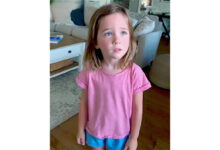My Wife Left Me With The Kids When I Lost My Job But Years Later The Tables Would Turn
When my wife walked out on me, she didn’t leave with a fight or a long, tearful goodbye. She left with a suitcase and a single sentence: “I can’t do this anymore.” Just like that, I was alone in our tiny apartment with our four-year-old twins, Max and Lily, and a mountain of unpaid bills.
Anna and I had once been a team—or so I thought. But when I lost my job, everything changed. One day I was a successful software engineer earning six figures at a promising tech company, and the next, the company collapsed in scandal. I went from a comfortable life to unemployment overnight.
Anna had always been polished, poised—never a strand of hair out of place. Even in the delivery room, she looked like she stepped out of a magazine ad. But beneath that perfection was someone who couldn’t handle life when it stopped being picture-perfect.
When I told her I lost my job, I saw the disappointment in her eyes. She didn’t yell. She didn’t argue. She just left—abandoning me and our kids at our most vulnerable.
The first year was brutal. I took any job I could find—delivering groceries by day, driving for rideshare apps at night, changing diapers, wiping tears, and pretending I had everything under control. Max and Lily asked about their mother constantly. I never knew what to say. How do you explain to two children that someone they love simply chose not to be around?
Luckily, my retired parents lived nearby. They couldn’t help financially, but they offered support and an extra set of hands when I needed them most. That kept me going. But what truly saved me were those little voices saying, “I love you, Daddy,” after long days, and the feeling of tiny arms wrapping around me as I put them to bed.
I had no choice but to keep moving forward. And slowly, life began to change.
During my second year as a single dad, I landed a freelance project with a cybersecurity company. My client was impressed and offered me a full-time remote position. It didn’t pay what I used to make, but it was stable and allowed me to be home with the twins.
We moved into a better apartment. I started cooking real meals again. I got back into shape, created routines, and built a life that wasn’t just about survival—it was thriving.
Then, one afternoon while working from a local café, I saw her again.
Anna.
She was sitting alone at a corner table, tears running silently down her face. Gone was the glamorous woman I once knew. Her coat was worn, her hair limp, her eyes shadowed with exhaustion. She looked like a stranger. But part of me still recognized her.
She looked up, and when our eyes met, her expression shifted from surprise to shame.
I should’ve stayed at my table. But I didn’t.
“Anna,” I said as I walked over. “What happened?”
She fumbled with her words, clearly uncomfortable. “David… I didn’t expect to see you here.”
“No kidding,” I replied, sitting down across from her. “You walked out without a goodbye, and now you’re crying in a coffee shop two years later. What’s going on?”
She hesitated, then finally said it: “I made a mistake.”
I leaned back, crossing my arms. “You think walking out on your husband and kids was just a mistake?”
She nodded slowly, her voice cracking. “I thought I could build a better life alone. It was all too much—the money, the stress. I couldn’t carry it.”
“And now?” I asked. “What changed?”
“I lost my job a few months after I left. My parents stopped helping. My savings dried up. The people I thought would be there for me weren’t. I’ve been struggling ever since.”
“And Max and Lily?” I said sharply. “Did you ever think of them? Because you haven’t mentioned them once since I sat down.”
She winced. “I did. I just… I didn’t know how to come back. I was ashamed.”
I stared at her for a long time. She looked genuinely broken, but that didn’t erase what she had done.
“I’ve built a life without you,” I said. “The kids are happy. I’m happy. You don’t just get to walk back in.”
She reached across the table, her hand trembling. “Please, David. I’ll do anything to make things right. I’ve changed.”
I pulled my hand back. “No, Anna. You left when we needed you most. You gave up on us. You don’t get to do that and then come back just because life didn’t turn out the way you hoped.”
I stood up and left her sitting there, silent and weeping.
That night, over dinner, Max excitedly told me about a worm he found at school while Lily showed me her latest drawing.
“Look, Daddy!” she beamed. “It’s us at the park.”
I smiled and kissed her forehead. “It’s perfect, sweetheart.”
Later, as I lay in bed, I thought about Anna’s tears. Part of me felt sorry for her. Maybe she truly had changed. Maybe she deserved another chance—but not with me.
I had a duty to my children, and that meant protecting their peace. Maybe someday, if she truly proved herself, I’d allow her to see them. But only if it was what was best for them—not her.
Children see more than we think. They feel absence. But they also feel love. As long as they know they are safe, supported, and cherished, they’ll be okay.
And that’s what I would give them—no matter who walked out or came back in.

